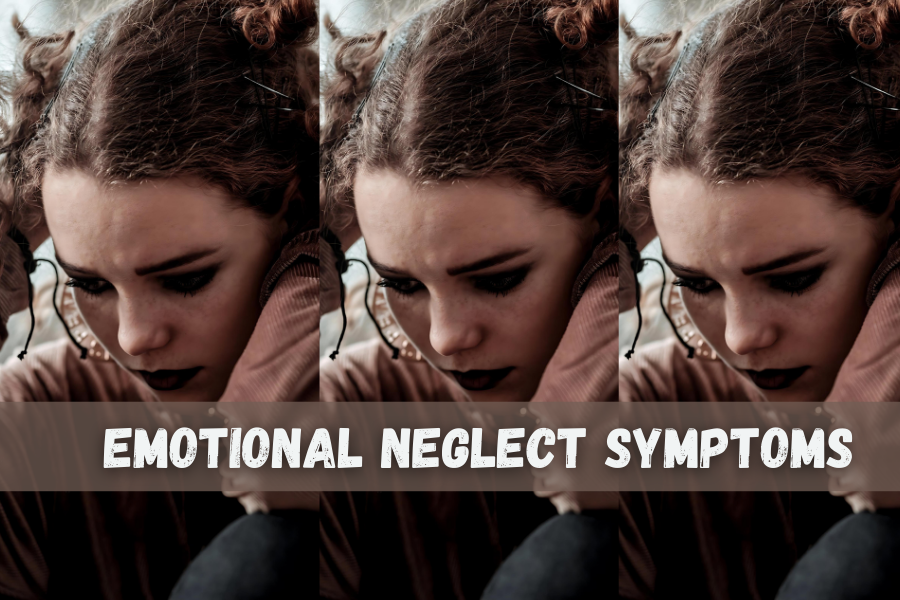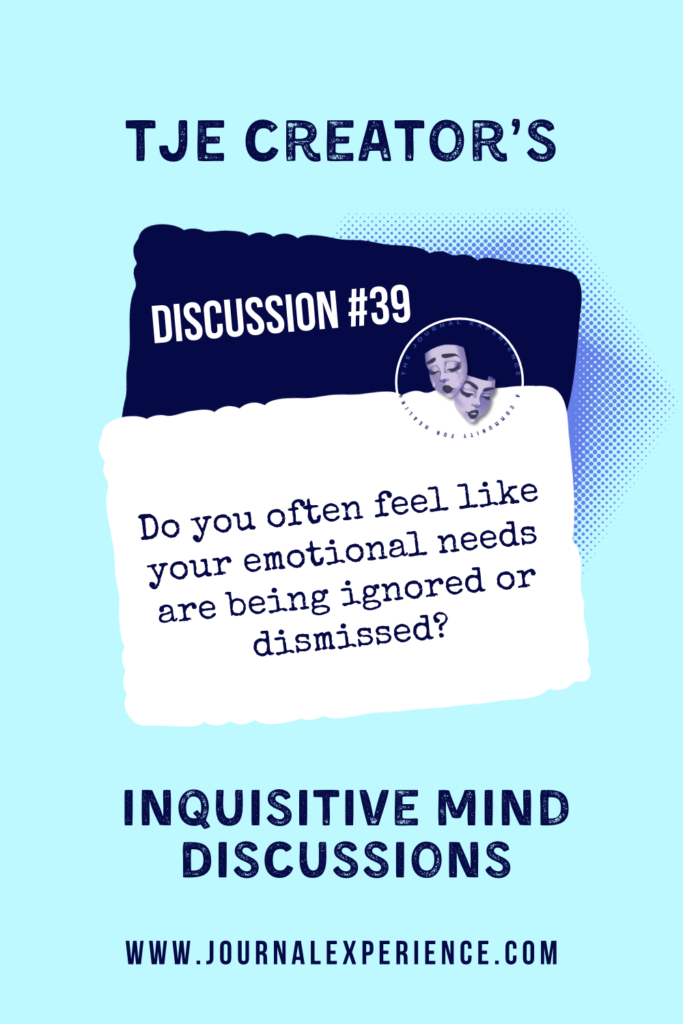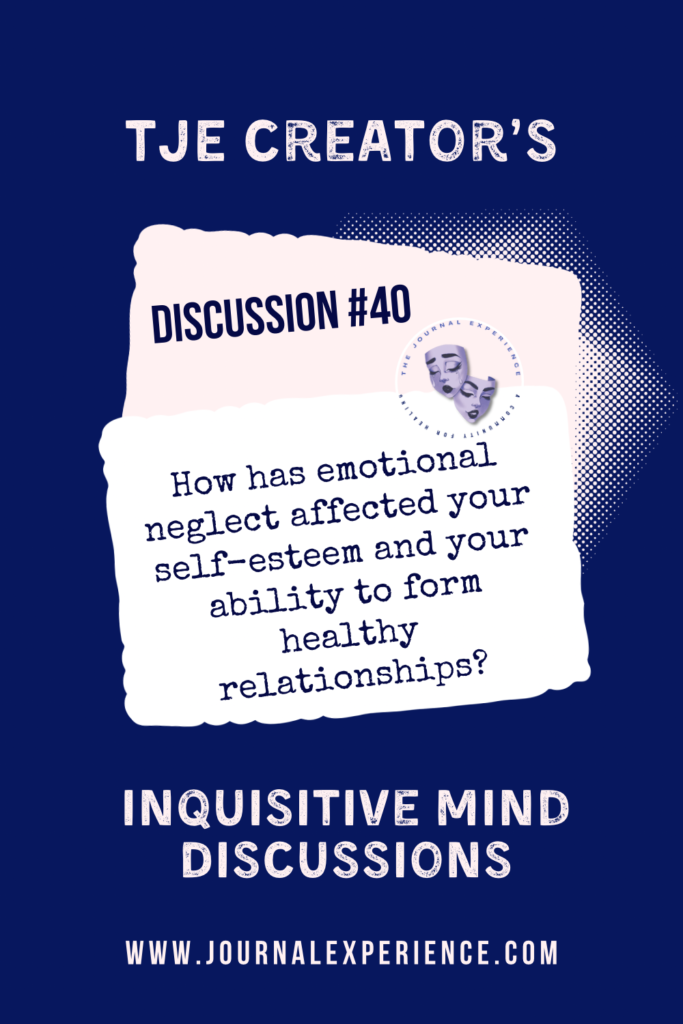Emotional neglect occurs when someone’s emotional needs are consistently ignored, dismissed, or unmet, often without the overt harm typically seen in emotional abuse.

While emotional abuse involves active mistreatment, emotional neglect is more passive—it’s about what isn’t happening rather than what is. In relationships, emotional neglect can manifest in the absence of emotional connection, empathy, or validation, leaving individuals feeling isolated and unsupported.
This post will explore the symptoms of emotional neglect, its profound impact on mental and emotional health, and how to recognize and address these unmet needs. By identifying the signs, you can begin to understand the consequences and take steps toward healing.
Signs of Emotional Neglect
1. Lack of Emotional Connection:
One of the most prominent signs of emotional neglect is the absence of emotional intimacy. In relationships—whether romantic, familial, or platonic—people need to feel emotionally connected to one another.
Emotional neglect manifests as a lack of empathy, understanding, and genuine interest in the other person’s feelings and experiences.
Without this connection, individuals may feel like their emotional experiences don’t matter, leading to a sense of isolation, even within close relationships.
This disconnection can cause emotional distance that deepens over time, creating barriers to communication and intimacy.
2. Invalidation of Feelings:
Invalidation occurs when someone’s emotions are disregarded or belittled. A person experiencing emotional neglect may hear phrases like, “You’re overreacting,” or “It’s not that big of a deal,” when they try to express their emotions.
This dismissiveness minimizes the importance of their feelings, leaving them unsure about whether their emotions are justified.
Over time, invalidation can cause individuals to suppress their feelings, doubting their right to feel sad, angry, or hurt.
It erodes self-esteem and can lead to emotional suppression, making it harder for the person to express their needs in future interactions.
3. Dismissive or Critical Behavior:
Another symptom of emotional neglect is when one partner consistently responds with criticism or indifference to the other’s needs. Instead of offering support or comfort during difficult times, the person may respond with disinterest or harsh judgment.
For example, when sharing personal struggles, a neglected individual might be met with statements like, “You’re being dramatic” or “Stop whining.”
This dismissive behavior makes the individual feel like their emotions are burdensome or wrong, discouraging them from seeking emotional support in the future.
Over time, this can create emotional barriers between partners, with the victim internalizing their emotions and feeling unworthy of care or attention.
4. Unmet Emotional Needs:
Emotional neglect leads to unmet emotional needs, which can manifest in various ways. People need reassurance, affection, and emotional safety in their relationships.
When these basic emotional needs go unmet, individuals may feel emotionally starved, constantly seeking but not receiving the support they crave.
Unmet needs can also affect one’s sense of identity, as a lack of emotional feedback can make people feel unseen or insignificant.
This can result in low self-worth and an inability to express personal desires or goals, as the individual begins to prioritize the needs of others over their own.

The Impact of Emotional Neglect
1. Loneliness:
One of the most profound impacts of emotional neglect is loneliness. Despite being in relationships, those who experience neglect feel emotionally alone.
This feeling of isolation can become overwhelming, as they lack the support and companionship that fosters emotional well-being.
Chronic loneliness can have serious consequences for mental health, including an increased risk of anxiety, depression, and feelings of emptiness.
It’s important to recognize this loneliness and take steps to address it, either by communicating needs to loved ones or seeking support from external sources.
2. Feelings of Worthlessness:
Emotional neglect often leads individuals to feel unimportant or undeserving of love and care. As their emotions are consistently overlooked or invalidated, they begin to internalize the idea that their feelings don’t matter.
This can manifest as feelings of worthlessness or low self-esteem, making it difficult for the individual to assert their needs in relationships.
The more these feelings grow, the harder it becomes for the person to recognize their own value, leading to a negative self-image and difficulty in forming healthy attachments with others.
Emotional neglect leaves deep, invisible scars. The Healing The Inner Trauma Child (HITCH) Method and the Codependency Cure™ offer structured guidance to reconnect with your emotional needs and rebuild a stronger, self-compassionate foundation.
3. Difficulty Forming Healthy Attachments:
People who have experienced emotional neglect, particularly in childhood, often struggle to form healthy attachments in future relationships.
Having learned that emotional needs are either unimportant or burdensome, they may have trouble trusting others or relying on them for support.
As a result, they might either avoid close relationships altogether or form insecure attachments, where they seek constant validation but fear abandonment.
Addressing these attachment issues often requires therapy or other forms of emotional healing to rebuild trust in oneself and others.
Coping with Emotional Neglect
1.Self-Care and Validation:
One of the first steps in coping with emotional neglect is learning to validate your own feelings. Recognize that your emotions are valid and deserve attention, even if others have disregarded them.
Engaging in self-care activities—such as journaling, meditation, or spending time doing things you enjoy—can help rebuild a sense of self-worth.
Self-compassion is key here. It’s essential to acknowledge your own emotional needs and start prioritizing your well-being, rather than waiting for validation from others.
2. Building Healthy Relationships:
Rebuilding emotional health often involves seeking out and cultivating relationships where your emotional needs are respected and met.
This might involve setting boundaries with individuals who have previously neglected or invalidated your emotions, or seeking out new friendships and connections that offer mutual support and respect.
Building healthy relationships takes time and effort, but by learning to communicate your emotional needs clearly and seeking partners who respect them, you can begin to heal from the damage of neglect.
3. Seeking Therapy or Counseling:
For many individuals, therapy is a crucial step in coping with the effects of emotional neglect.
A therapist can help you unpack the impact of emotional neglect, explore past experiences, and develop strategies for self-care and boundary-setting.
Therapy can also provide a safe space to explore attachment issues and work on rebuilding trust in relationships.
In particular, therapy can be beneficial for individuals who have experienced childhood emotional neglect, as it offers a pathway to understanding and healing the deep emotional wounds that often stem from such experiences.

If emotional neglect has shaped your patterns of self-worth and connection, the Codependency Therapy | Self Love Recovery Treatment Program provides powerful, step-by-step tools to heal past wounds and learn how to nurture your emotional well-being from the inside out.
Recognizing Emotional Neglect in Children
1. Difficulty Expressing Emotions:
Children who experience emotional neglect may struggle to identify and express their feelings.
Without a supportive environment to learn how to process emotions, they may suppress their feelings or act out in ways that seem inappropriate for the situation.
Emotionally neglected children may also struggle to understand the emotions of others, as they haven’t been taught how to empathize or respond to emotional cues effectively.
2. Withdrawal from Social Activities:
Emotionally neglected children may withdraw from social activities or struggle to form friendships.
Without the emotional support they need, they may feel isolated, unsure of how to connect with others.
This withdrawal can also lead to low self-esteem and difficulties in forming healthy social bonds as they grow older.
Recognizing emotional neglect early is critical for breaking generational patterns. The Webinar: Origins of Codependency and Pathological Narcissism explores how childhood emotional neglect shapes future relationship struggles—and how healing truly begins.
3. Academic Struggles:
Emotional neglect can have a direct impact on a child’s academic performance.
Without emotional support, children may struggle to concentrate in school, feel overwhelmed by their emotions, or lack the motivation to succeed.
Their emotional needs, when unmet, can hinder their ability to thrive in academic settings.
Overview
Emotional neglect can have lasting and profound effects on individuals, leaving them feeling isolated, unworthy, and disconnected from others.
By recognizing the symptoms—such as lack of emotional connection, invalidation, unmet needs, and critical behavior—you can begin to understand how emotional neglect has impacted your life.
The effects of emotional neglect, including loneliness, low self-worth, and difficulty forming attachments, can be addressed through self-care, healthy relationships, and therapy.
It’s essential to prioritize your emotional well-being and seek support if you’ve experienced emotional neglect.
You deserve to have your emotions acknowledged and your needs met in healthy, supportive relationships.
If you’ve experienced emotional neglect or recognize any of the signs discussed in this post, it’s time to prioritize your emotional health.
Join The Journal Experience and become part of a community that understands and supports emotional healing. Sign up to become a member today and gain access to exclusive resources, including expert advice and support.
Don’t forget to subscribe to our newsletter for more valuable insights and to receive a free digital copy of our TJE Burn Book!